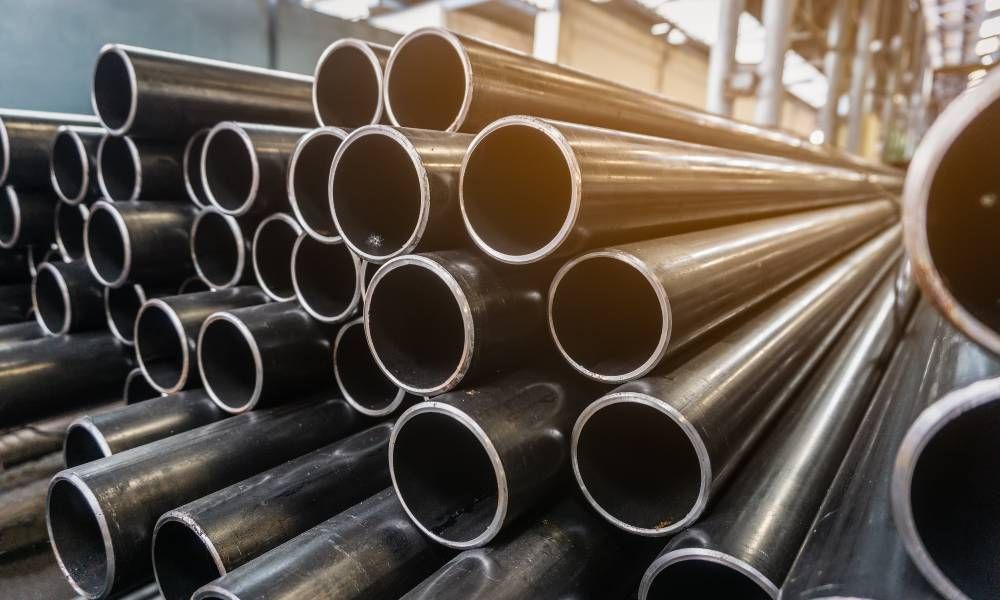Common Industrial Uses for Stainless Steel Pipes

Stainless steel, renowned for its remarkable properties, has become indispensable across various industries. This alloy combines iron with chromium and other elements, endowing it with exceptional strength, corrosion resistance, and durability. Its versatility, aesthetic appeal, and hygienic properties make stainless steel popular in numerous applications. Let's explore four common industrial uses for stainless steel pipes to understand why they’re so crucial.
Oil and Gas Sector
In the oil and gas industry, stainless steel pipes play a critical role. These pipes withstand extreme conditions, including high pressure and temperature, making them ideal for extraction and processing activities. Their resistance to corrosion and wear ensures long-lasting performance even in the toughest environments, minimizing downtime and maintenance costs.
Stainless steel pipes also excel in transporting oil and gas. Their robust construction prevents leaks and contamination, ensuring safe and efficient delivery. Additionally, their ability to handle harsh chemicals and abrasive substances further enhances their suitability for this sector.
Construction Industry
Stainless steel pipes provide essential support in the construction industry. Their high tensile strength and flexibility make them perfect for structural frameworks in buildings and infrastructure projects. These pipes offer stability and resilience, ensuring the longevity and safety of structures.
In drainage systems, stainless steel pipes offer durability and resistance to corrosion. They maintain optimal flow rates and prevent blockages, ensuring efficient water management. Moreover, their smooth interior surface reduces friction, enhancing the overall hydraulic performance of the drainage system.
Stainless steel pipes also add a touch of elegance to architectural designs. Their sleek and modern appearance makes them a preferred choice for decorative elements and facades. From handrails and balustrades to innovative structural accents, stainless steel enhances architectural projects’ visual appeal and functionality.
Food Processing and Pharmaceutical Sectors
In the food processing and pharmaceutical industries, maintaining hygiene is paramount. Stainless steel pipes meet stringent sanitation standards due to their nonporous surfaces, which resist bacterial growth and contamination. This quality ensures that products remain safe and free from harmful pathogens.
Stainless steel pipes are highly resistant to corrosion, even when exposed to aggressive cleaning agents and extreme temperatures. This characteristic extends their lifespan and reduces the risk of contamination, making them an essential component in these critical industries.
Water Treatment and Desalination Plants
Water treatment and desalination plants require materials that can withstand exposure to water and harsh chemicals. Stainless steel pipes perfectly fit this requirement due to their exceptional corrosion resistance. They ensure the integrity of the water supply, preventing contamination and maintaining water quality.
The durability and reliability of stainless steel pipes make them ideal for long-term use in water treatment facilities. Their robust construction minimizes maintenance needs and ensures consistent performance, even in challenging environments. This reliability plays a crucial role in providing clean and safe water to communities.
Value Across Various Industries
Stainless steel pipes stand out for their versatility, performance, reliability, and value across various industries. As you explore the common industrial uses for stainless steel pipes, consider how they can enhance your projects and operations, ensuring efficiency and longevity.
At CMPI, we manufacture custom stainless steel pipes for a variety of industries. With our state-of-the-art machinery, we can cut, polish, and form pipes to meet your exact requirements. Get in touch today to learn more about our fabrication services.



